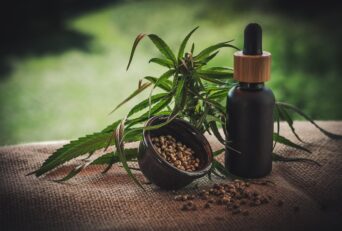Imagine you’ve just finished a workout. Your muscles are aching, your breathing is heavy, and you’re covered in sweat. You’re feeling exhausted but also exhilarated. You know that all this effort is going to pay off in the form of a healthier body.
Now is the time to focus on recovery so you can come back stronger for your next session. What happens after the workout is just as important as the workout itself. In order to maximize muscle recovery, you need to take the proper steps to allow your muscles to repair and rebuild.
Start with eating nutritious foods, add healthy supplements, and take care of your muscles by stretching and foam rolling. Moreover, don’t forget to hydrate throughout the day and ensure to get enough sleep.
So, what are the best things to do after a workout to maximize muscle recovery?
Table of Contents
Eat a Nutritious Meal
The first step to maximizing muscle recovery is to eat a nutritious meal. It’s important to replenish your body with the nutrients it needs to repair and rebuild muscle tissue.
Focus on consuming protein and carbohydrates. Protein is essential for muscle growth and repair, while carbohydrates help replenish glycogen stores and promote muscle recovery. Good sources of protein include lean meats, poultry, fish, eggs, and dairy, and carbohydrates can be found in fruits, vegetables, whole grains, and legumes.
In addition to protein and carbohydrates, you should also consume healthy fats (e.g., avocados, nuts, seeds, and olive oil) that, among other things, support joint health, and prevent inflammation.
Take Healthy Supplements
While nothing can replace a good meal and the right lifestyle choices, there are a number of supplements that can help support muscle recovery.
For example, branched-chain amino acids (BCAAs) promote muscle protein synthesis, reduce muscle breakdown, increase endurance, and stimulate fat loss. They are available in a variety of protein powders and drinks.
CBD is also growing in popularity among athletes and fitness enthusiasts, who use it for its pain-relieving and anti-inflammatory properties. Just make sure to check everything you need to know about Delta-8, CBD and other compounds, so you know which product is best for you.
Hydrate Throughout the Day
Dehydration can negatively impact your muscle performance and recovery, so make sure you drink plenty of water not only before, during, and after you exercise, but also throughout the day.b
The easiest way to do this is to carry a water bottle with you and sip on it throughout the day. Also, try to avoid caffeinated drinks (e.g., coffee, soda, etc.) that act as diuretics and cause you to urinate more frequently.
You also need to pay attention to electrolyte balance, which is important for maintaining muscle function and cell health.
Try Stretching and Foam Rolling
In order to maximize muscle recovery, you need to address your muscles. Even if you exercise intensely and your muscles are sore, they still need to be stretched.
A good rule of thumb is to hold stretches for 30-60 seconds and repeat each stretch three to five times. In addition to helping you recover faster, stretching also reduces your risk of injury.
On the other hand, foam rolling helps with muscle recovery by increasing blood flow and reducing muscle soreness. It also relieves tightness and knots in muscle tissue. Foam rolling has also been shown to increase flexibility and range of motion, which can improve performance and decrease the risk of injury.
If you’re new to foam rolling, start with a basic foam roller and see how you like it. If you find that it’s too hard, you can always upgrade to one of the softer foam rollers on the market.
Get Enough Sleep
Finally, don’t forget to get 7-8 hours of sleep at night. Sleep is critical for overall health and well-being, and it’s also important for muscle recovery. It’s when your body releases hormones that promote muscle growth and repair, and there’s really no way around this.
To ensure sleep and relaxation, avoid caffeine in the afternoon and evening, establish a regular sleep schedule, and create a relaxing bedtime routine. Make sure your bedroom is dark, quiet, and cool, and limit your screen time before bed.
You can also try sleeping with a compression sock or wrap, which can help reduce swelling and promote blood circulation.
Conclusion
Now that you know how to help your body recover faster, you can spend more time working out and doing things you love. You’ll feel better, your workouts will be more productive, and you’ll reach your goals faster.
Eat well, exercise regularly, and drink plenty of water – and you’ll feel like a new person in no time. Just remember that recovery is just as important as exercise. So, give yourself some time to recover after every workout.






